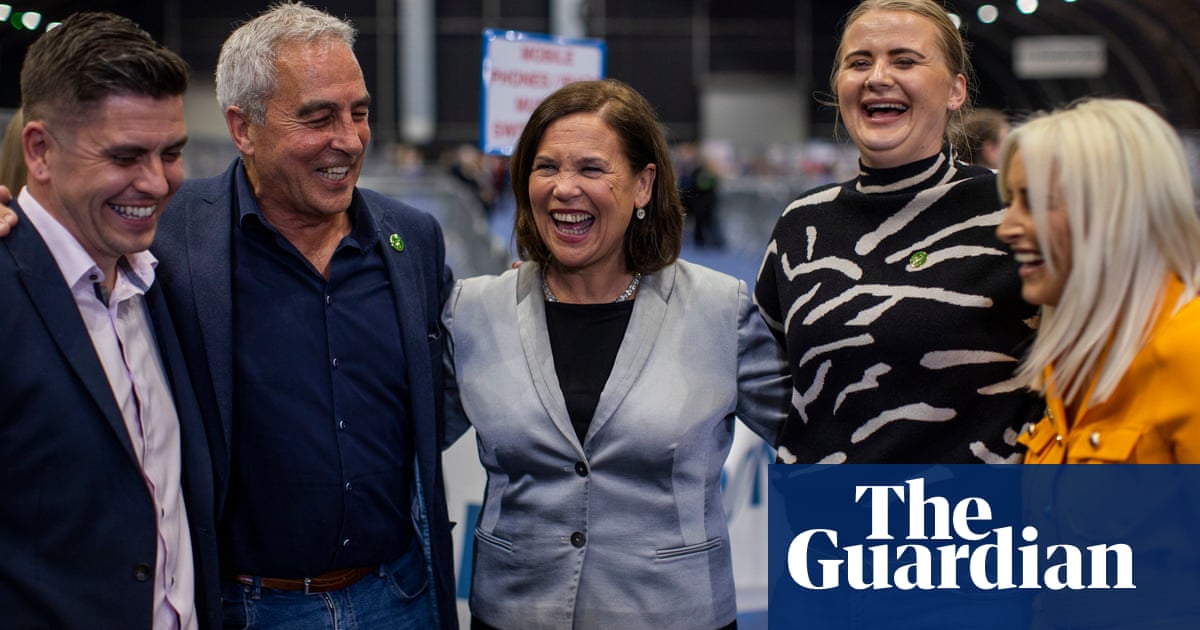
Sinn Féinwas celebrating a historic victory in the Stormont assembly election on Saturday despite warnings from the Democratic Unionist party that it would block the formation of a new power sharing executive until the Northern Ireland protocol was changed.
As counting resumed ahead of the allocation of final seats, it was clear that Sinn Féin, with 29% first preference votes, had overtaken the DUP, which won 21.3%. It meant the all-Ireland republican party would be entitled to nominate its deputy leader, Michelle O’Neill, as the Northern Ireland’s first nationalist first minister.
The scale of the party’s victory left unionists at some count centres visibly stunned and prompted jubilation among supporters of Sinn Féin, whose leader, Mary Lou McDonald, told TalkTV she believed a border poll on a united Ireland would be “possible within a five-year timeframe”.
The other big winner in Thursday’s election was the centrist Alliance, which surged to 13.5%, putting it in third place and showing the growing clout of a third bloc that eschews nationalist and unionist labels.
Under power-sharing rules Sinn Féin, the DUP and Alliance, and possibly other parties that may clear a threshold, are supposed to form a new executive on 12 May.
However the DUP leader, Jeffrey Donaldson, said he would refuse to join a new administration until the UK government “dealt with” the protocol, the post-Brexit deal that puts a trade border in the Irish Sea.
That would paralyse Stormont, which would be run by a caretaker administration, and put pressure on the prime minister, Boris Johnson, to amend the protocol to end the stalemate. All sides expect the impasse to last weeks, possibly months, possibly culminating in a new election.
Donaldson has avoided saying whether he would serve as a deputy first minister if Sinn Féin held the first minister post. The posts have equal power but the prospect of O’Neill holding the more prestigious title is anathema to many unionists.
However Gregory Campbell, a DUP MP, told RTE on Saturday the protocol was the only obstacle to reviving Stormont and signalled that the party could accept O’Neill as first minister. “The people have spoken.”
Voters ranked the cost of living and health service as their chief concerns, but the campaign was dominated by unionist anger at protocol and the contest between Sinn Féin and the DUP for the first minister post.
That squeezed the Ulster Unionist party (UUP) and the moderate nationalist Social Democratic and Labour party (SDLP), which may not have the numbers to qualify for ministerial posts. Doug Beattie, the UUP leader, was fighting to retain his own seat.
Source: Guardian





